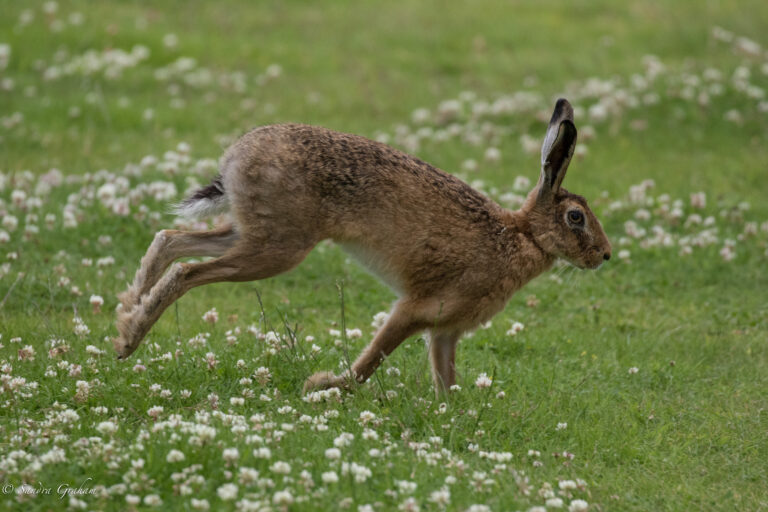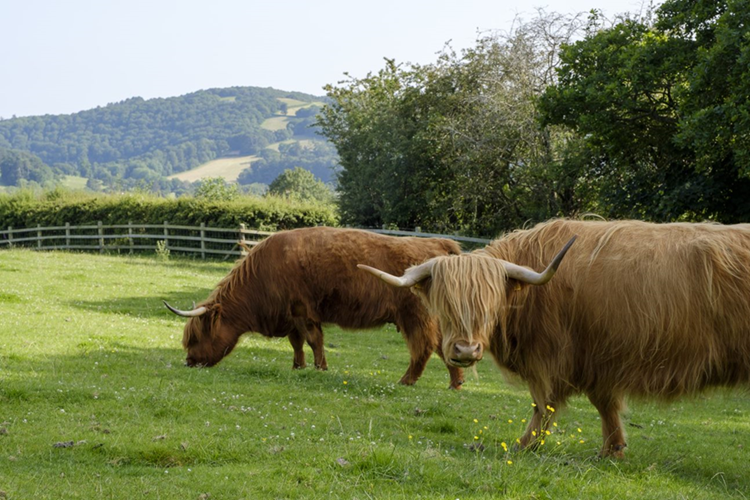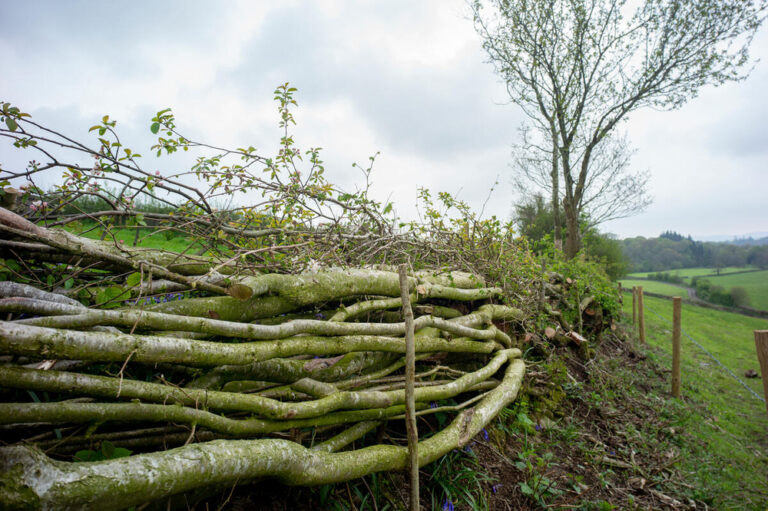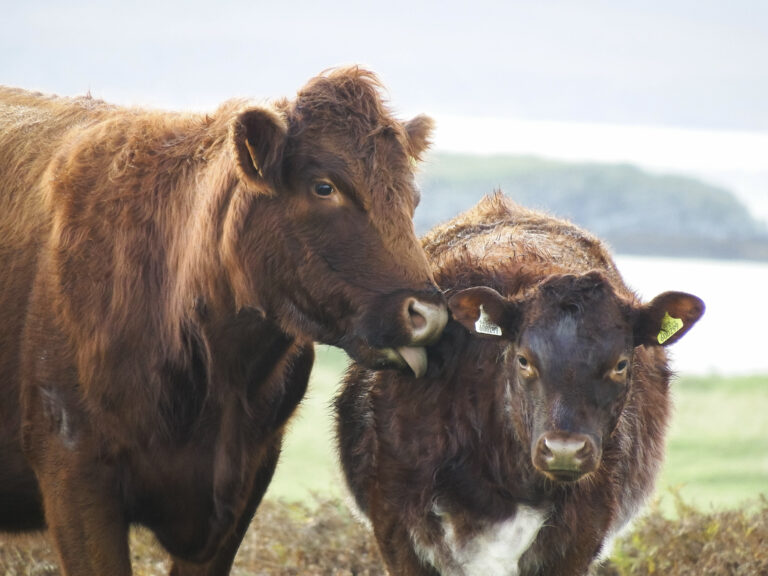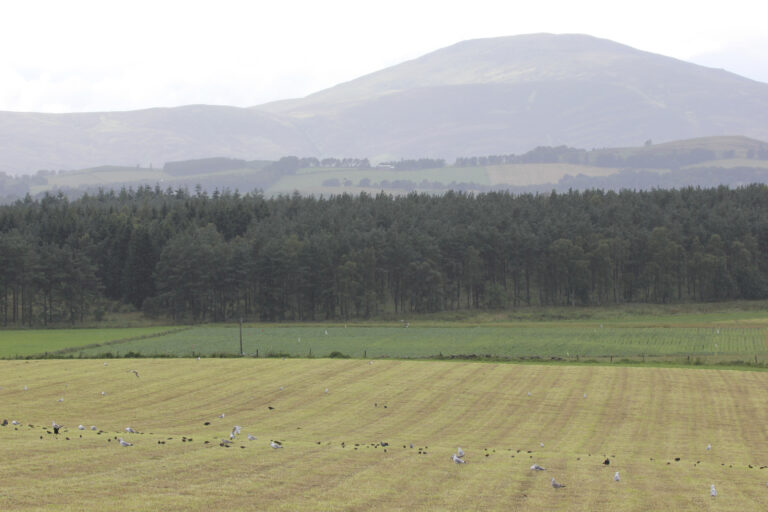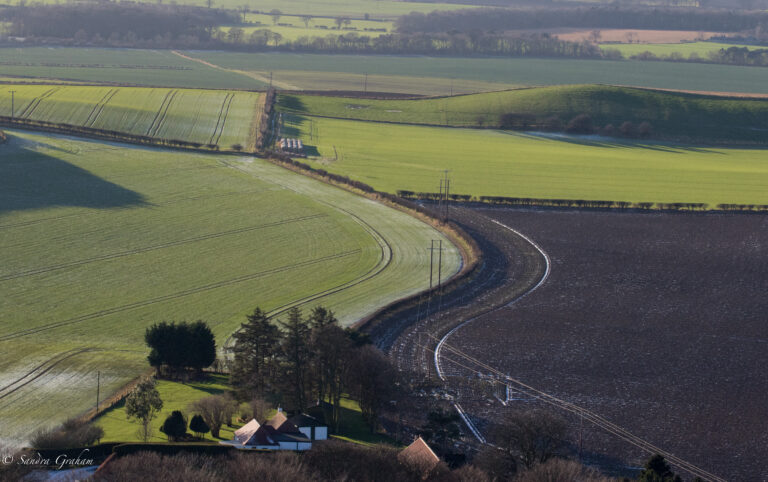%22%20transform%3D%22matrix(3%200%200%203%201.5%201.5)%22%20fill-opacity%3D%22.5%22%3E%3Cellipse%20fill%3D%22%23919c58%22%20rx%3D%221%22%20ry%3D%221%22%20transform%3D%22matrix(-250.30738%203.38432%20-.43397%20-32.09703%2099.5%209.2)%22%2F%3E%3Cellipse%20fill%3D%22%238f9a56%22%20rx%3D%221%22%20ry%3D%221%22%20transform%3D%22matrix(-11.59467%20-24.09194%2038.51824%20-18.53758%2027.5%2058)%22%2F%3E%3Cellipse%20fill%3D%22%23909b57%22%20cx%3D%22145%22%20cy%3D%22155%22%20rx%3D%2271%22%20ry%3D%2215%22%2F%3E%3Cellipse%20fill%3D%22%2355601b%22%20rx%3D%221%22%20ry%3D%221%22%20transform%3D%22matrix(-144.82483%20-6.18802%202.21982%20-51.95272%20189.4%2091.7)%22%2F%3E%3C%2Fg%3E%3C%2Fsvg%3E)
Campaigners have renewed calls for the Scottish government to deliver sustainable farming, as the Agriculture and Rural Communities Bill passed into law yesterday evening.
%22%20transform%3D%22translate(1.5%201.5)%20scale(2.92969)%22%20fill-opacity%3D%22.5%22%3E%3Cellipse%20fill%3D%22%23fff%22%20rx%3D%221%22%20ry%3D%221%22%20transform%3D%22rotate(-105.6%2039.5%20-21.7)%20scale(39.70316%20163.63236)%22%2F%3E%3Cellipse%20fill%3D%22%23303805%22%20rx%3D%221%22%20ry%3D%221%22%20transform%3D%22matrix(-29.01115%20-70.62513%20130.34502%20-53.54268%20232.9%2086.3)%22%2F%3E%3Cellipse%20fill%3D%22%23fffeff%22%20rx%3D%221%22%20ry%3D%221%22%20transform%3D%22matrix(-101.27345%202.29822%20-.47818%20-21.07139%2034.2%201)%22%2F%3E%3Cellipse%20fill%3D%22%23758424%22%20cx%3D%2296%22%20cy%3D%22143%22%20rx%3D%22104%22%20ry%3D%2260%22%2F%3E%3C%2Fg%3E%3C%2Fsvg%3E)
On 2 May, 21 organisations wrote to Mairi Gougeon, Cabinet Secretary for Rural Affairs, Land Reform and Islands, calling for a marked increase in the pace and scope of change in Scotland's farm support system, to enable farming to meaningfully contribute to Scotland reaching Net Zero.
%27%20fill-opacity%3D%27.5%27%3E%3Cellipse%20fill%3D%22%23fff%22%20fill-opacity%3D%22.5%22%20rx%3D%221%22%20ry%3D%221%22%20transform%3D%22rotate(-175.8%20242.4%2036)%20scale(598.36615%20123.30908)%22%2F%3E%3Cellipse%20fill%3D%22%23151e00%22%20fill-opacity%3D%22.5%22%20rx%3D%221%22%20ry%3D%221%22%20transform%3D%22rotate(-176.7%20149%20198.8)%20scale(732.81815%20144.14239)%22%2F%3E%3Cellipse%20fill%3D%22%23fbf9ff%22%20fill-opacity%3D%22.5%22%20rx%3D%221%22%20ry%3D%221%22%20transform%3D%22matrix(-35.78706%20126.40773%20-248.6917%20-70.40664%20254.1%201.5)%22%2F%3E%3Cpath%20fill%3D%22%2362700e%22%20fill-opacity%3D%22.5%22%20d%3D%22M814.5%20316.5l-540%20141-237-234z%22%2F%3E%3C%2Fg%3E%3C%2Fsvg%3E)
Members of Scottish Environment LINK have called on the Scottish government to uphold requirements for farmers to meet environmental regulations, following calls from NFU Scotland to remove or weaken many of those requirements.
%27%20fill-opacity%3D%27.5%27%3E%3Cellipse%20fill%3D%22%23fff%22%20fill-opacity%3D%22.5%22%20rx%3D%221%22%20ry%3D%221%22%20transform%3D%22matrix(-40.60633%20138.38466%20-734.05093%20-215.39319%20530.8%2084)%22%2F%3E%3Cellipse%20fill%3D%22%23231e21%22%20fill-opacity%3D%22.5%22%20rx%3D%221%22%20ry%3D%221%22%20transform%3D%22rotate(80.4%20-239%20312.2)%20scale(288.42529%20481.93728)%22%2F%3E%3Cpath%20fill%3D%22%23f4f6f5%22%20fill-opacity%3D%22.5%22%20d%3D%22M733.1%20485.6L461.6%2015.4l218.3-126%20271.5%20470.2z%22%2F%3E%3Cellipse%20fill%3D%22%2366686a%22%20fill-opacity%3D%22.5%22%20rx%3D%221%22%20ry%3D%221%22%20transform%3D%22matrix(-43.14778%2085.04893%20-132.03738%20-66.98638%20325.7%20192)%22%2F%3E%3C%2Fg%3E%3C%2Fsvg%3E)
Scottish Environment LINK members have called on the Scottish government to do more to cut emissions from farming following today’s announcement that the government will weaken its 2030 climate targets.
%27%20fill-opacity%3D%27.5%27%3E%3Cellipse%20fill%3D%22%23fff%22%20fill-opacity%3D%22.5%22%20rx%3D%221%22%20ry%3D%221%22%20transform%3D%22matrix(764.08702%20-37.36338%204.50663%2092.1613%20381.6%2040.6)%22%2F%3E%3Cellipse%20fill%3D%22%234a4d3e%22%20fill-opacity%3D%22.5%22%20rx%3D%221%22%20ry%3D%221%22%20transform%3D%22rotate(-.8%2022312.6%20-26442.3)%20scale(765%20114.44215)%22%2F%3E%3Cellipse%20fill%3D%22%23fff%22%20fill-opacity%3D%22.5%22%20rx%3D%221%22%20ry%3D%221%22%20transform%3D%22rotate(85.4%20110%20149.6)%20scale(65.04148%20714.3414)%22%2F%3E%3Cpath%20fill%3D%22%239eb03e%22%20fill-opacity%3D%22.5%22%20d%3D%22M3%20355.5h765v168H3z%22%2F%3E%3C%2Fg%3E%3C%2Fsvg%3E)
This week the Rural Affairs and Islands Committee published its report on the Agriculture and Rural Communities Bill. The report echoed many of the proposals made by Scottish Environment LINK members and shared by other organisations.
%27%20fill-opacity%3D%27.5%27%3E%3Cellipse%20fill%3D%22%23dfd8ff%22%20fill-opacity%3D%22.5%22%20rx%3D%221%22%20ry%3D%221%22%20transform%3D%22matrix(727.6296%201.32303%20-.13042%2071.72875%20343%2057)%22%2F%3E%3Cpath%20fill%3D%22%23495800%22%20fill-opacity%3D%22.5%22%20d%3D%22M757%20743.7L-7.7%20717%208%20267.3%20772.6%20294z%22%2F%3E%3Cellipse%20fill%3D%22%23898699%22%20fill-opacity%3D%22.5%22%20rx%3D%221%22%20ry%3D%221%22%20transform%3D%22matrix(481.60704%20-8.00614%20.74644%2044.90215%20327.6%20132.2)%22%2F%3E%3Cpath%20fill%3D%22%2383913f%22%20fill-opacity%3D%22.5%22%20d%3D%22M484.5%20406.5l330-246-783%2012z%22%2F%3E%3C%2Fg%3E%3C%2Fsvg%3E)
On 6 March, Scottish Environment LINK held a Holyrood Parliamentary Reception, bringing people together around the Farm for Scotland’s Future campaign. We started with two short videos from two very different farmers, both working with nature to the benefit of their businesses.
%22%20transform%3D%22matrix(3%200%200%203%201.5%201.5)%22%20fill-opacity%3D%22.5%22%3E%3Cellipse%20fill%3D%22%23a3a598%22%20cx%3D%2291%22%20rx%3D%2279%22%20ry%3D%2279%22%2F%3E%3Cellipse%20fill%3D%22%231d1c1e%22%20rx%3D%221%22%20ry%3D%221%22%20transform%3D%22matrix(159.23993%20-30.77537%208.96443%2046.38434%20185.5%20129)%22%2F%3E%3Cellipse%20fill%3D%22%23080808%22%20rx%3D%221%22%20ry%3D%221%22%20transform%3D%22matrix(40.3817%20-6.626%202.7861%2016.97975%20239.8%20148.1)%22%2F%3E%3Cellipse%20fill%3D%22%23090909%22%20rx%3D%221%22%20ry%3D%221%22%20transform%3D%22matrix(-30.08715%20-9.834%206.53639%20-19.99811%20131.7%20159)%22%2F%3E%3C%2Fg%3E%3C%2Fsvg%3E)
First Minister Humza Yousaf announced new details today of how farm funding will be distributed under the Scottish government’s new system, revealing an approach that campaigners say won’t do enough to help farmers and crofters to produce food sustainably.
